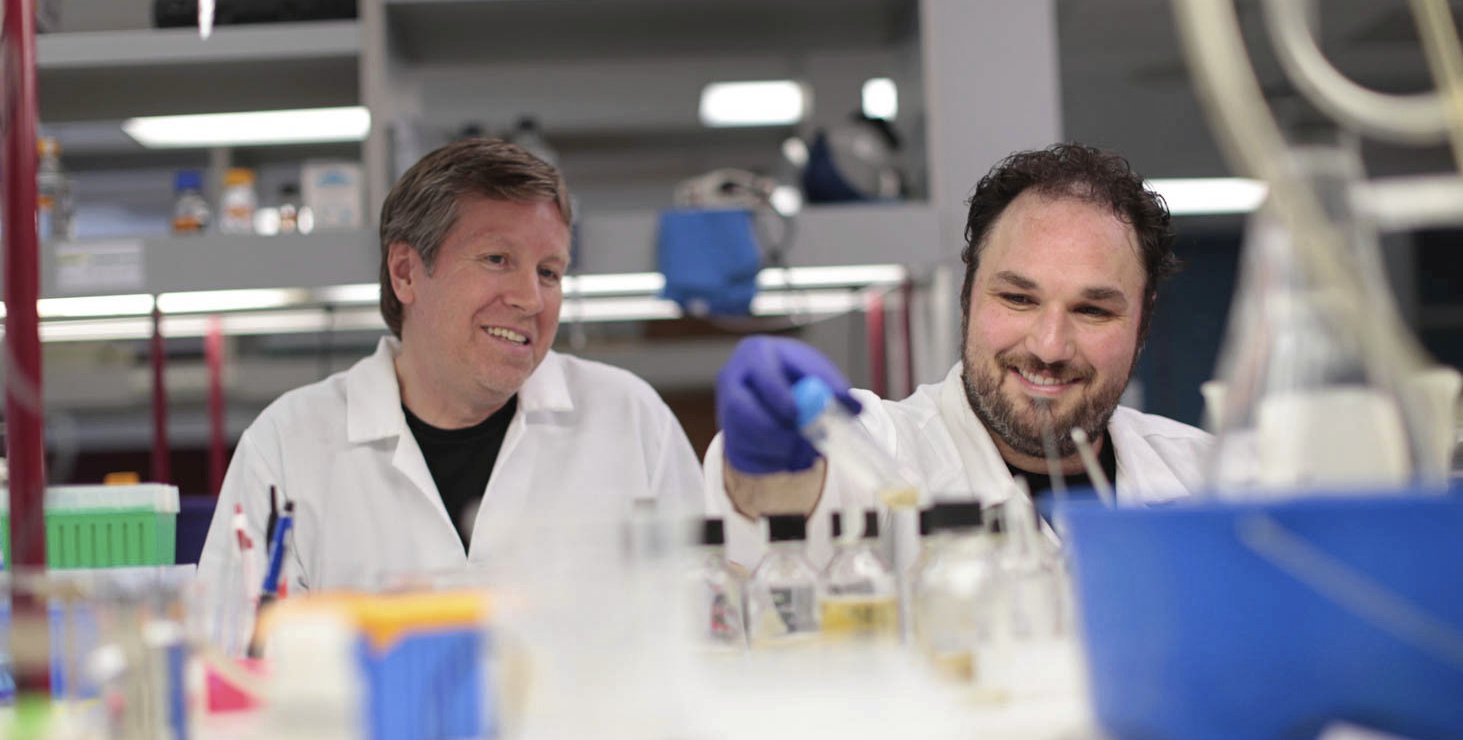Mark Goldberg, PhD, is working on a potential way to turn cancer stem cells into harmless cells. He and his advisor, Charles Spruck, PhD, assistant professor in the NCI-designated Cancer Center, are optimistic that they could turn this approach into new drugs that prevent breast cancer from returning.
Goldberg is supported by the first-ever research fellowship given by the David Whitmire Hearst Jr. Foundation. The funds were awarded specifically for this groundbreaking project.
“Breast cancer can spread to other organs very early, sometimes even before it’s detected,” said Spruck. “Those micrometastases—just one or a few cells—lie dormant for years, and are insensitive to anticancer drugs. Our goal is to switch those cells to a normal cell type that can’t generate a tumor.”
In as-yet unpublished research, Spruck’s lab recently discovered a protein that’s crucial for pre-cancerous cells to begin growing aggressively and out of control. Goldberg will use animal models of breast cancer to show that genetically inactivating this protein prevents secondary tumors from forming. The next step is to search for candidate drugs that inhibit the protein.
“If we find blockers of this protein that controls progression to malignancy, they could be given to breast cancer patients, after standard treatment has eradicated their primary tumor, to eliminate any remaining cancer stem cells,” added Spruck.
Goldberg’s background in bioengineering gives him a fresh perspective on cancer research. As a PhD student at Caltech, he designed implantable glucose and ion sensors using microfluidics and nanophotonics. That experience gives him a flexible, solutions-oriented approach to designing experiments.
“During Mark’s interview—the first time I met him—we came up with a really exciting way to apply what he was working on at Caltech to cancer research,” Spruck commented. “That kind of creative thinking and insight is invaluable—it’s why I hired him for this fellowship-supported spot.
“Because this research is so early-stage, it’s hard to get funded through traditional avenues. The Hearst Foundation fellowship allows us to get the evidence that this strategy works. That data will be key to getting the support we need for the drug discovery phase.”
